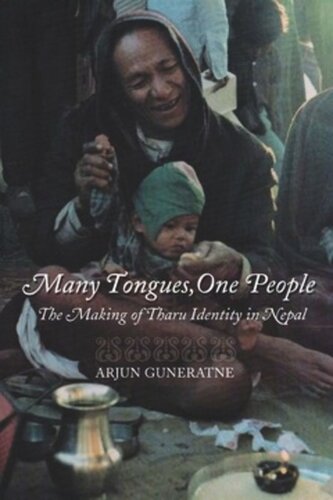

Most ebook files are in PDF format, so you can easily read them using various software such as Foxit Reader or directly on the Google Chrome browser.
Some ebook files are released by publishers in other formats such as .awz, .mobi, .epub, .fb2, etc. You may need to install specific software to read these formats on mobile/PC, such as Calibre.
Please read the tutorial at this link: https://ebookbell.com/faq
We offer FREE conversion to the popular formats you request; however, this may take some time. Therefore, right after payment, please email us, and we will try to provide the service as quickly as possible.
For some exceptional file formats or broken links (if any), please refrain from opening any disputes. Instead, email us first, and we will try to assist within a maximum of 6 hours.
EbookBell Team

4.4
52 reviewsThe Tharu of lowland Nepal are a group of culturally and linguistically diverse people who, only a few generations ago, would not have acknowledged each other as belonging to the same ethnic group. Today the Tharu are actively redefining themselves as a single ethnic group in Nepal's multiethnic polity. In Many Tongues, One People, Arjun Guneratne argues that shared cultural symbols—including religion, language, and common myths of descent—are not a necessary condition for the existence of a shared sense of peoplehood. The many diverse and distinct socio-cultural groups sharing the name "Tharu" have been brought together, Guneratne asserts, by a common relationship to the state and a shared experience of dispossession and exploitation that transcends their cultural differences. Tharu identity, the author shows, has developed in opposition to the activities of a modernizing, centralizing state and through interaction with other ethnic groups that have immigrated to the Tarai region where the Tharu live.This book"s claims have wide implications for the study of ethnic identity and are applicable far beyond Nepal. The emergence of the category of Native American, for example, may be considered an analogous case because that ethnic identity, like the Tharu, subsumes people of different cultural origin, and has been defined both through the state and against it.